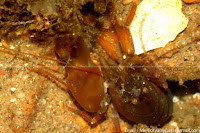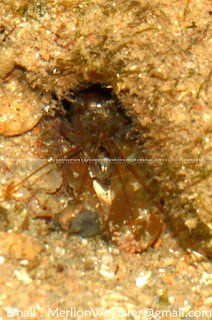Merlion Wayfarer was out exploring the shores again during the January low tides. This time round, she went eastwards to Pasir Ris Park.
She was surprised to see the condition of the beach. At the edges of the mud-sand composite beach, there was about a metre of foam at the incoming tide.
She recalled past news reports on the beach:
- "NEA's review finds water at Pasir Ris beach not safe for swimming" (CNA, 25 August 2009)
- "Pasir Ris beach still not safe to swim in" (AsiaOne, 07 September 2010)
- "Good dirty fun" (TNP, 30 January 2012)
- "Pasir Ris beach still too dirty, say some" (AsiaOne, 01 February 2012)
And in her exploration, in addition to the usual washed up debris, she found further evidence of the pollution rampant on the beach:
Dead fish were littered over some parts of the beach (Too unsightly to include!)
Sources
- "NEA's review finds water at Pasir Ris beach not safe for swimming" (25 August 2009), Channel News Asia. Retrieved from http://www.channelnewsasia.com/stories/singaporelocalnews/view/1000798/1/.html.
- "Pasir Ris beach still not safe to swim in" (07 September 2010). AsiaOne News. Retrieved from http://www.asiaone.com/News/AsiaOne+News/Singapore/Story/A1Story20100907-236048.html.
- "Good dirty fun" (30 January 2012). TNP.sg. Retrieved from http://www.tnp.sg/content/good-dirty-fun (Expired as of 2014).
- "Pasir Ris beach still too dirty, say some" (01 February 2012). AsiaOne.com. Retrieved from http://www.asiaone.com/News/Latest+News/Singapore/Story/A1Story20120130-324808.html.




































































